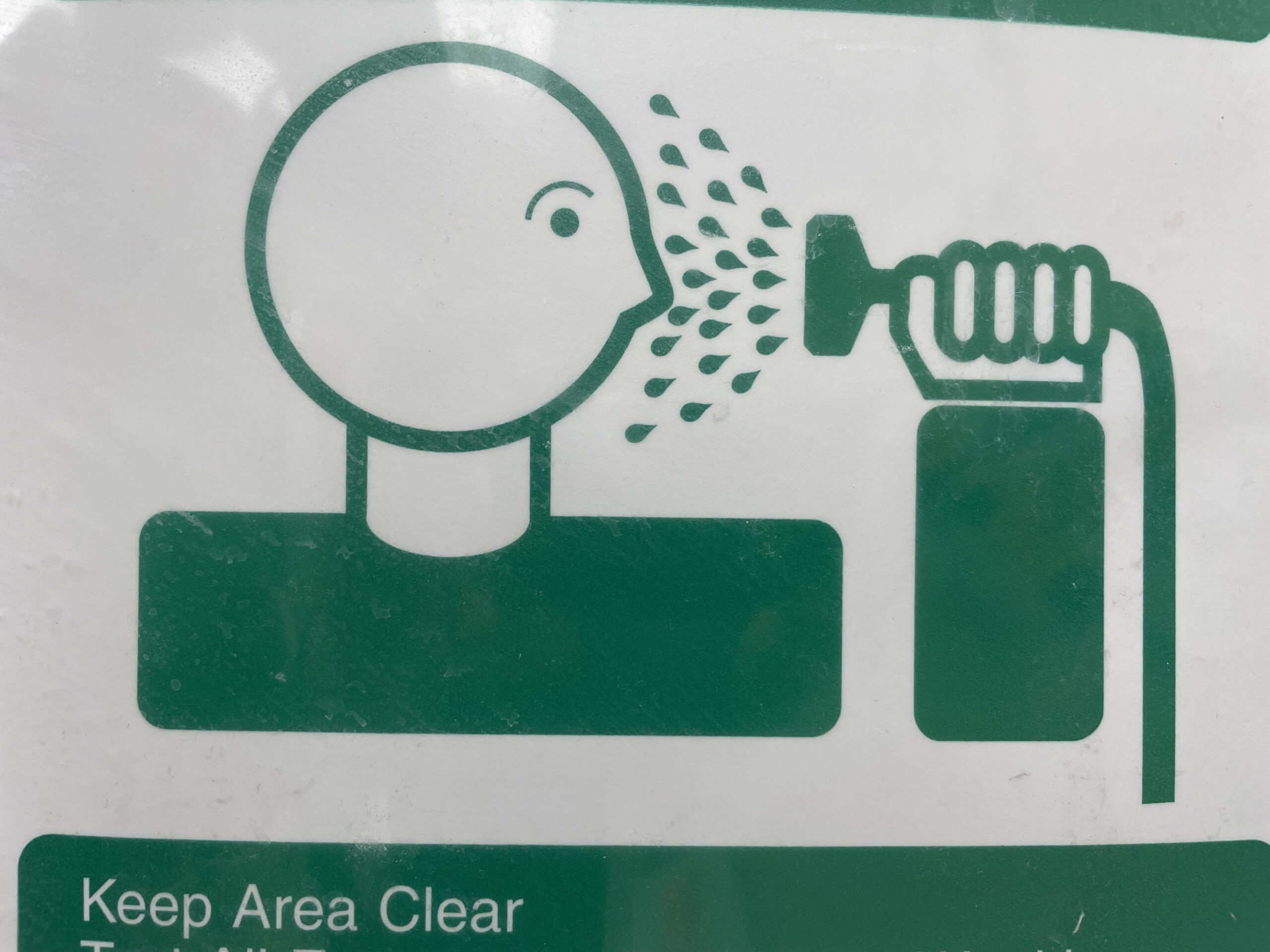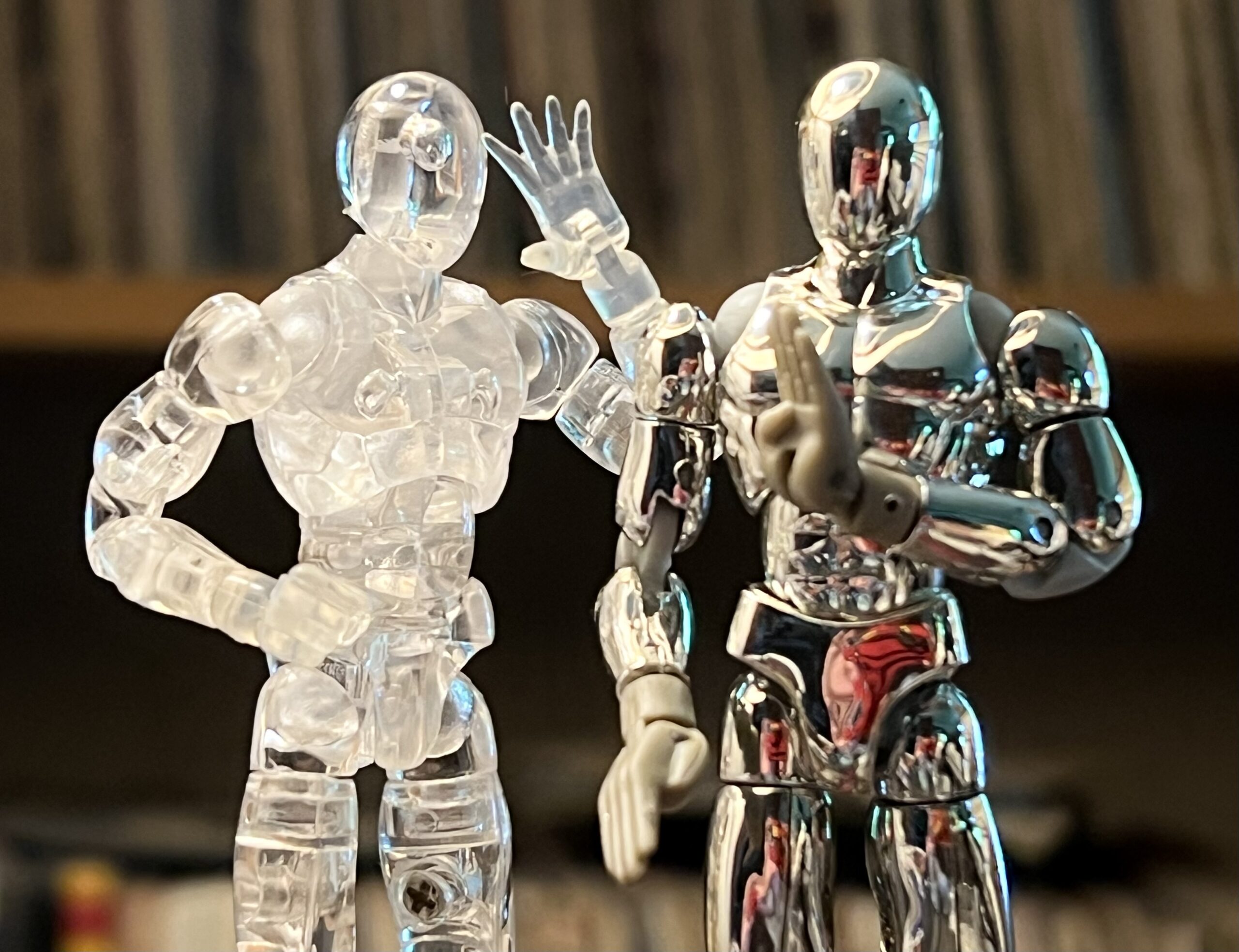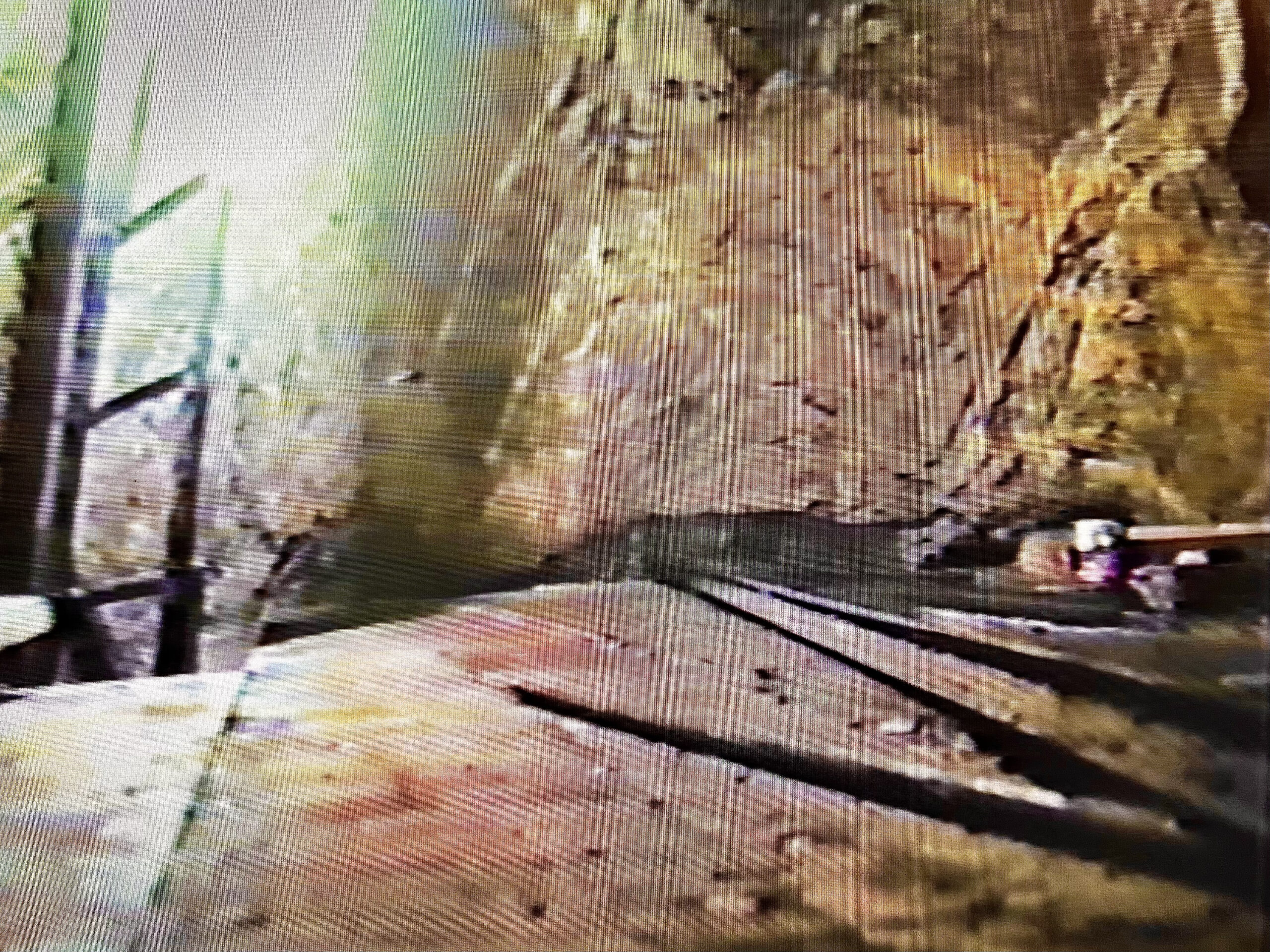MY GRECO-RUSSIAN INVESTIGATION (Pindar’s Third Pythian Ode)
Reginald Gibbons
Dear “Hieron” (I’ll call you—not your made- strophe 1
up lump of a name),
a friend came from your tyrannical
capital to tell
me you’re ill in spirit and in mind.
If it were no shame
to wish you some good, then I’d long for
Kheiron, the centaur
son, long dead, of a goddess, to be
alive among us
again—great four-legged lord of forests
and mountain meadows
who foster-fathered that maker of
remedies for harms,
ailments, disorders: Asklepios!
Hero healer of
our maladies, our bloody wounds and
blows of battle, strife
of spirit, the discord among kin,
peoples, even thieves
like you…. But if he were here, could this
great healer cure you?
As we know, Koronis before she antistrophe 1
birthed Asklepios,
was slain on her pillows by fletched shafts
from the immortal
bow of Artemis—Apollo wished
it so. The dead young
mother’s blood-stained shade descended to
Hades’ house…. (Don’t think,
Hieron, there’s nothing that can check you!)
The doomed mother-to-
be of the healer-to-be, in her
fluttering ardor,
had thought little of (and had not told
her father, horseman
Phleygus, of) her simple appetite
for pleasure in her
soft fragrant bed with a lovely young
man…. But—after she
had lain with the world-vigilant, far-
seeing God of Song?!
(Hieron—might your own fat appetite
be your fated end?)
And in her womb was Apollo’s own epode 1
semen! Pure
goodness! She’d only wanted, before
wedding Him,
a sweet revel. Lovely, she sought more
loveliness.
Like you, she thought—OK, this I what
I deserve.
But you build gilt towers to yourself!
And you go
so low: you bend people’s darkest hopes
toward more
darkness, you whip them to follow you
while you take
from them what they need, and what do you
save for them?
For them, you mock, demean, demonize
the pour souls
they fear. Casually you incite them
to rampage.
You stir them to mob up in fury,
lift torches,
you abandon the addicted and
the sick, you
stick them with cutbacks, give your pals more
profits, and
leave people weeping in a storm-ditch.
Koronis of the strophe 2
gorgeous raiments was at last
the victim of her
illusions, her privilege,
and committed her
folly, Hieron—d’ya get that?
And (just like you!) she
was heard, seen!—by an ever-
surveilling god on
guard in His secure temple.
Apollo…. Even
though amidst distracting gifts
brought there to Him—gold
lyres, bows, bright arrows, tripods,
spears, rows of candles,
and outside, fat flocks and herds,
He saw her!—His true
informant was His own mind,
knowing all, sure of
all… mulling all. Apollo
does not lie, nor can
mortals deceive Him by word,
deed, fraud, hoax, hustle,
sting, scheme, flimflam, scam or sham.
Watchful Apollo’s antistrophe 2
own thinking brought Him the sight
of poor Koronis
in bed with her illusion
of love, and showed Him
her naiveté, simple
heart, defenselessness….
Even so, for him His fierce
sister took flight with
incandescent revenge on
His behalf, to the
lake house where Koronis thought
she was hidden—near
the mountainsides that Kheiron
once had known and roamed!
This weak creature’s fate… came there,
annihilated
her and some close to her who
knew what she’d done but
saw her infatuation
as something one should
forgive. But there’s no stopping
such a spark that sets
on fire a green wild forest.
Koronis’ family epode 2
prepared her funeral.
In one stride, Apollo
stood beside her blazing
pyre. The flames parted for
His divinity, He
seized and rescued His un-
born infant son and flew
to centaur Kheiron. To
him He gave this child half-
godly, to be taught to
heal mortal afflictions:
great Asklepios! (Your
rotten end, Hieron, is
certain. In you, what
is there that could be healed?)
Everyone who went to the healer strophe 3
bearing their
sores and cankers, their tumors and boils,
battle wounds
from sharp bronze, pitiless arrows that
had struck them
from afar, those whose bodies trembled
with fevers
or chills, and others—all these he healed,
he soothed with
spells and chants. He administered his
own potions,
he bandaged with balms the several
parts of the
body, and on many he worked with
hands and blade
to revive their limbs, rebuild their might.
But Hieron,
listen: Even deep wisdom (such as
you don’t have
and you despise), even sacred skill
such as his—
can be in thrall to profit. Much gold
was pressed on
Asklepios, unholying his
healer’s hands….
So much gold…. For even more, he did antistrophe 3
what only
he among mortals could do—which was:
to devise
his miraculous ways on a dead
man till this
man breathed again!—after Hades had
hidden him
from all his mourners…. Asklepios
received his
gold—and instantly Zeus, the son of
Kronos, with
one small motion of one hand, took all
the breath from
both men’s breasts and both fell dead—blasted
by Zeus’s
lightning, too…. With our merely mortal
minds, Hieron,
we must seek from justice—that is, from
the nature
of the good—what is best for all, what
is right for
all. You’re covetously, hoggishly
wrong. Take straight
steps, Hieron!—toward the well-being of
your own mind.
If the centaur were still living in epode 3
his cave, and if I could have sung to
him some soothing soul-song, honey-sweet,
I might have persuaded him to teach
a new healer to cure the love of
riches and power which so fills you,
dreadful Hieron. To bring sanity
to you, I myself would have journeyed
far across the dark seas to you in
a fast ship, I’d have voyaged long sea-
roads to the monuments of human-
kind demeaned by your pyrite towers,
your rivers of unclean currency
into which you’ve lowered your double
gold-plated goblet so many times.
You with your dead, gold-dyed hair; the fake
gold beard of your soul, your fool’s-gold face!
Your aureate cronies and toadies!
Mendacious evasions; invasive
avarice; heedless treason—aren’t these
the coming doom of your mulish peeves,
your bluffs, your bullshit, your underworld
gambles, your shell-within-shell-game fraud?
Civil to citizens and to all strophe 4
river gods, mountain gods,
all cities, plains, coasts, you should be. But
no, you will not. You won’t!
Fields, farms and towns are vulnerable.
Cities should be cherished
as sanctuaries—and the broad plains,
hilltops and harbors where
they stand. The places we all have not
despoiled still breathe themselves
into our spirits. Begrudge nature
when we so need it? Why
assault your own nation? If I were to
make a safe journey, I’d
bring you blessings—for your people’s health
and for the full, quick de-
contamination of your soul. But
my blessings can’t atone
for your destructiveness—your hatred,
callousness, vengefulness.
You swindle humanity itself.
You borrow to rule, and
your cash and existential debts stink
everywhere. Even if
you atoned for your worst deeds and words,
none will ever admire
even the least of your evils but
those who joined you in them.
I pray and hope only for you to antistrophe 4
fall. May the mother of
all the gods—that goddess who herself
is the mothering earth
whom you abuse, demean, endanger,
as a woman—may she,
our great and only home, hear, in peace-
ful night the singing of
Pan and girls and boys, in quiet streets,
who chant and choir to her—
to console her, praise her, thank her, and
revere and pray for her
under the stars. As you, Hieron, do
not. (And near you, children
can’t risk chorusing—you bode obscene
pained ruin for children.)
Both ancient sayings and new knowledge
speak to us, and you should
attend what good souls, old and new, have
taught us: our own fate is
measured out to us in gains and in
losses. Fools, sharks, knaves don’t
bear this truth with grace. Good persons do
try to bear it—giving
to others, honoring the good in
others, bringing succor
to—not suckering—the sick and hurt.
The persecuted and the profiled.
If anyone’s to be respected and admired, epode 4
it is one
who rules well and without chasing after his own
spoils and wins.
Let’s consider heroic Kadmos, so unlike
you or the
utterly unheroic people around you
who expect
dazzling destinies—not prosecution and shame.
To Kadmos
came dreadful, heart-freezing trouble, yet he earned his
immortal
blessings (while to Nixion came full disaster—
as to you
it’s coming….) In Thebes, Kadmos’s ecstatic joy
surpassed all
his power of imagining when he wedded
the dark-eyed,
divine, exquisite Harmonía, and this god-
like man was
even allowed to hear the songs of Apollo’s
mountain-throned,
holy, teleo-perfect, inspiring Muses,
crowned with light….
They sang at the wedding feast, as strophe 5
dragon-slaying Kadmos
gazed at the immortal offspring
of Kronos on their gold
dais, and their flawless hands gave
him the bounty of their
glorious Olympian gifts.
But in later times came
anguish for this groom and bride—their
three living daughters stole
the parents’ joy by giving grave
offense to the fierce god
Dionysos, who punished them
all with horrifying
reversals, remorse, grief. In His
rage He transformed Kadmos
and Harmonía into snakes….
Years later, the divine
pity of Zeus restored their fair
bodies. He made them death-
less, blessed. But no restoration
can come, Hieron, to you.
Now you live in auto-inflamed antistrophe 5
blithering and TV.
Nixion—a devious man,
like you—willfully schemed,
flouted laws, and set out to smash
his “enemies” with his
power. Conspiratorial,
hot-tongued, a bold liar—
Nixion was, however, far
more intelligent than
you and your pals. With your every
contemptuous shrug you
blight. You corrupt. You laze. You’ll sell
out anyone, any-
thing. You slither away yet you
can’t help leaping back to
your crimes, slurs, and whining. You sneer,
jeer, deny, belittle,
you con your hires, you conceal bribes
inside frauds inside thefts….
(Zeus bound Nixion on a fire-
wheel spinning forever.)
Forever your name will be a sump epode 5
of greed and lust,
treason for
gain, of dodges, rackets, and fixes,
and your counter-
feit soul. And
among others whom you will not heed,
I will be one
who has told
how ancient is the style of your spite,
pique, casual
cahoots, self-
dealing in pelf and transgressions, your
avid and
inveterate
billionizing (your heavy purse seems
testicular
to you). Your
will thrashes about, you’re starved for self-
abasing
cowed praise from your
courtiers. (In private they hate your
blunders and
gluttonous guts.)
Your enemies abhor the way you
exult in
sadistic dis-
avowals, grotesque self-deceit, and
sour despisals
of the weak.
You’re the greatest absurdist ever
to choke on
the corrosive
venom of your own vampirish words.
In these terrible times of small good,
I become
small, and in times
of greatness, I do not become great.
With skills of
Vmind and mother-
tongue I will honor whatever fair
fortune is
given to me
and mine. If I am to win any
reward, may
it be a mite
of fame, having practiced how to frame
with wordman-
ship dispraises
and praises, which I write and recite.
Phrasecraft and
an honest ear
help us keep our heroes close, for their
long, large-souled
devotion to
honest generous purposes. In
long-ago
times, verses turned
by adroit song-makers were for an
admiring
good remembrance.
May I, even if only with what
I write, be an
ally, in
my verses, for an ally, but the
foe of my foe—
a wolf to
chase and chase him down. Any
path he takes, I
will follow.
5/21—7/4/2017
AUTHOR’S NOTE: This is a complete translation, adapted in various ways to 2017. Pindar’s ode was composed between 476 and 467 BCE. Hieron, who had earlier commissioned Pindar to write several victory odes for his winning chariot teams and drivers, was the tyrannos—king, tyrant—of Syracuse in Sicily from 478 to 467 BCE. The Third Pythian Ode, however, was written as a get-well poem. But Hieron did not recover. Pindar’s tone of voice in this ode is solicitous regarding Hieron’s health, but also offers him advice about how to be a good ruler.
THE GODDESS
Kathleen Ossip
1. {Trump wins; Muri cries; I decide to read Paradiso as antidote}
The moon was very halved. The girl on the phone sobbed
I didn’t think it could happen. All nature and human nature
seemed halved in one quick night. She had canvassed and canvassed,
a behavior we believed artistic. The hammered throng mobbed
the hotel ballroom, glared and danced: picture
of an evil species, bareassed.
And sloppy greed for the easy fix, the dumbest.
And I too dumb to see a fix. The future lost its color.
When Dante climbed away from the vile circles,
he swapped saints for criminals
and the lines pushed onward, duller.
Dull or not, I craved rigor. I crowdsourced a translation.
I found dull Paradiso online and clicked on one iteration.
2. {I look up two pertinent words; Beatrice points out the immorality of optimism}
Reading Paradiso, I couldn’t remember
what fascist and demagogue precisely meant.
I kept looking them up: A person
who is extremely right-wing or authoritarian.
A political leader who seeks support by appealing to prejudice, not logic.
That way, it turned out, many of us leant.
Optimism was blindered, immoral. Therefore we had greatest need of it.
Sure it’s an artwork but we needed a prayer.
Dante read the world of people as a book of morals
and the solar system as a concert en plein air
and Paradise a stage whose lighting was favorable.
“You, optimist, have been—ahem—less than serious!”
said the know-it-all bitch of Paradise, Beatrice.
3. {Anatomy of optimism}
I was no know-it-all: I had hope.
Reading Paradiso I hoped our story could end happily
even if our every screen talked differently.
Underneath the latest haircuts, you could recognize
the befuddled faces underneath, the scared eyes
halfway up the icy hellish slope.
All said: Just wait. Death will seep in—
but death is no apocalypse, except by projection.
Don’t let the bombs hear! I cried, fearing our fear could self-fulfill.
But the unguessed-at can always happen.
Our guesses alone won’t fill the bowl.
History is bunk: There’s no way to get the story whole,
and ice has only one direction: forward and fall.
4. {I wonder about happiness}
Reading Paradiso, I couldn’t remember
what I thought happiness was. A tradeoff for knowledge?
Resonance of form and vibration of color?
The compulsive writing of sonnets?
A docent in the museum of memories? The long-
worked-for achievement of causes yet undreamed?
Hearing the morning birds calling, and calling it song?
Why not knowledge and happiness?
The question set me to imagining Paradise,
a place of slender trees that blossomed music,
A Fascist may love intuition but just then it sparked with logic.
Wikipedia said: Paradise: A place of harmony outside time.
But I wanted to earn my own sublime.
5. {Happiness possible in the USA?}
Where could I find Paradise in the United States?
I couldn’t be hopeless and do it.
Recording the truth is never a mistake:
Oh my American boys and girls,
we’ve crooned praisesongs of enterprise and pluck.
While the Capitol scarved into a river of baroque pearls,
we’ve wandered a lonesome, prideful planet.
If you aren’t succeeding, you will feel a lack.
You want to rediscover the old worn chair
and the simple everyday necessity of walking through a field
and the devotion of all your time to your feelings, sad sack,
faking your principles in return for health insurance,
skating on your despair.
6. {I question Dante’s logic}
Reading Paradiso, the lustrous unreal,
I knew we were living in hell.
Children sold, women sold.
Slaughterings based on “affiliations,”
based on “grievance.”
Humankind sworn enemy of humankind
and of an inflamed planet.
I was no watcher of planets, I was a planet, stranded in my orbit.
In photos, the Red Spot looked like an abstract painting on cold
Jupiter; in the Phillippines, Marawi City was ruined,
400,000 souls displaced in an “armed conflict”—
who were being punished for what, Dante,
on the crest of another July?
7. {Another July: everything cannot not change}
Another July: Every roundtrip ticket
from New York to London cost the Arctic
three square meters of ice.
The months without an r ticked,
heatened, wettened, flabbed. Failure rates came loose.
We rattled our triviality
into earthquakes. All we had learned from nature was fragility.
Weighed me down. Weighed us.
The citizenry was a listless witness,
choking. Lower than this we could not go.
But higher? The meter now is ticking and we owe…
I’d entered puberty afflicted by vision.
Now I flashed and guessed: how to turn divine.
8. {Apotheosis}
Like a suspect slipped I down.
My sallow face now flushed vermilion;
my estrogen and its volatiles receded;
receded my beliefs, my opinions;
a calm followed, strong.
We think our part is the whole, that’s where we go terribly wrong.
Give me work, I said, something has to be done.
Like one acquitted did I rise.
Not blood-hot and personal: the world was fresh and general.
Everything cannot not change, yes!
Another planet, mellow and open and subtle?
What I’d been, unthinking: a pinball struck, a knee tapped by a hammer,
struggling to understand, not struggling to care: a placeholder.
9. {Apotheosis, cont’d.}
Placeholder with small breasts, thin wrists, my alter-
ego who’d been sleepwalking, as if that were my job.
Now my job was faith, history, clarity of vision.
Like a goose I’d been stuffed with art, religion
and chewed it up in a sad prison.
Walking outside, I found a tiny brown pod,
infinitely detailed like a snail’s shell, but vegetable, smaller
than a pinky nail, patterned with careful
nicks along the swirls. Why lavish detail
on such a trifle? I was detailed but wasn’t special.
Around me, details abounded. My eyes burned to nail
it all down, see it whole. The work of a goddess:
I took my place.
10. (The Goddess confronts a country rooted in genocide, apocalypse)
On the road to the Last West, the taste for darnfool folk heroes
and Christ’s fire-cloud coming survives.
You are not your professional experience.
You are not an audience for horrors.
Claws (systemic) rip at large incarcerated populations
and rip at all our lives.
I was a Goddess, sacred to the sorry, to deserving zeroes,
to those who square the dissonance, to those who in school did cry,
to those who integrate art into effectiveness, to the starers
at rivers, to the gesturers who come, bolder now, to the rescue. Pelted by
hail, I crossed the country with my femme-y power.
I thanked Louise, Gwendolyn, Anne for these stanzas, shorter.
And I cut clear through.
11. {Aerial establishing view}
I saw endless war,
water shortages, rolling blackouts, opioids, arms,
noxious cynicism, soldiers who spoke in different
rhetorical registers. Saw everywhere error
screened by gleam and grief;
saw someone believe just for a moment,
sure as science, in real world liberation.
Saw it wasn’t possible to become very rich without causing great harm.
Saw how wonder breaks through tedium to attention.
Zoom in: Saw a blue potato flower.
Thought. Saw that only the quality of the thought remains.
Offered up my superpower: my pain.
And I cut clear through.
12. {She sees}
I saw the slivered moon, lonesome and prideful;
saw a rack of miniskirts in American Apparel;
an unshaded bulb in an unshaded window;
people fucking without affection;
poems that went a little viral;
a doll with a home-crocheted apron;
an urn studded with lapis lazuli;
children transmitting wisdom with blood in their eyes.
A woman too alone said aloud, to God, Was that really necessary? Fucker!
Saw a good man do great things and no one learned from his mother.
Saw ziggurats of unimportant objects; all the sentiments—
Empathy gentler than anger; anger better than complacence.
I cut clear through.
13. {Police funeral}
Thousands of cops
jammed the blocked-off midtown blocks.
What’s happened at the tower, I thought, quailing.
For a goddess controls not human rages, bombs, rifles;
they are subject to chance, history, will.
What’s going on, I asked a cop with a hijab
under her cap. She answered: Funeral.
The streets full of heavy uniforms, armed; heavy feeling;
coffee shops where anger steamed.
The eulogy on loudspeaker chafing Fifth Avenue.
That’s how the future seemed.
Don’t look to a goddess to tell the future. But in that mob,
I couldn’t cut clear through.
14. {Sees more, rejects noisy bombast}
I went on, mothed north, south,
waited at bus stops with a slack mouth.
Saw an office where the most emotionless always won;
along the seaside a gelatinous being slop onto my bare toes;
sperms meet eggs through true language, or its opposite, force,
or by dint of science. Saw a house sparrow glide on
air currents, her daughters simmering in the nest.
I went on, coasted east, west.
Saw epigenomes respond to environment.
Saw those who were nurtured recognize nurture.
Those who weren’t, couldn’t.
Purred a muted tune, that melody mine own thunder,
Zeus. And I cut clear through.
15. {Still she is Mommybody}
Even as Goddess who cut clear through,
the limits of my pants were the limits of my queendom.
Though I floated in my rainbow dress
an inch above the sidewalk, I heard requests:
What’s up that skirt? What can you do with that tongue?
Slim of limb and wide of flank,
I was empty in the pants.
When I was a girl, in St. Ambrose Church,
a man’s naked body hung, flexed.
I would grow into a receptacle plastic and sexed
on which a man’s naked body with freedom
flexed. My skeleton a crucifix on which my parts hung.
I was a Goddess. Still I was Mommybody.
16. {Mommybody}
Why so voiceless, why so dim?
Mommybody drips with beauty.
Mommybody drains the energy.
And she thinks eternally of Him.
The systems are imperfect,
everyone would agree.
She held out a poem and asked
I made it, does it do, Nobodaddy?
Nobodaddy, overseer of all injustice.
She went on dates with Him.
He set her goals with vigor.
He filled her days with purpose.
The Holy Trinity is our poetry,
he sounded: Father Son Spirit—
never to be understood but demonstrates
that He’s fine with mystery.
He boomed: I am mysterious because
Secresy gains females loud applause.
–What you think is the story is not the story,
she whispered to Him, revelatory.
Like a god, everything magic
becomes science sooner or later.
Then becomes business. Mommybody
was forced to perform this, frantic.
First a rainbow hologram with eyes for nipples,
crowing and wet to the knees.
Next a calendar with mucus-y numbers.
Then: That’ll be fifty cents a peek, please.
What was it like to be Mommybody?
It was like—I am so ugly! No, I am so beautiful!
It was like buying creams to make your face acceptable.
Exactly like. No, really.
But men groped and flashed and worse.
But other men held her when she cried
and one man called her labia neat as a crisply folded shirt.
Her faithful, so generously supplied.
She had good sex that gilded her with divinity,
bees in the belly dissolving, low, into honey,
and bad sex: He fingered her into yelps of pain that were not,
though He hornily called them, pleasure. NOT.
Mommybody is divinely engineered.
Even with its thigh-fat, is her left leg
less than a suspension bridge?
Is her remaining egg less than an egg?
But in His Paradise, she is not goddess.
She is temptress and workhorse,
patched together with filth, rank jelly,
two balloons, things Mother said, teen movies.
Her Paradise is flexible and tough.
In her Paradise, she never smiles.
Her craggy face is honored.
Elsewhere, meanwhile
Nobodaddy opened His mouth and (lying) spake:
You can be whatever you want to be. Pressured,
she thought a minute: I would like to be Milton.
Then she gave herself a shake:
No, I think I would like to be a person.
A person who lives kindly in a vicious system.
Ethics is the aesthetics of the future: right.
Each by her own body, each by her own light.
17. {Complication; imagination}
But must you complicate? Yes, I’m afraid I really must.
Disaster, if it comes, will lead to fifteen theories and six museums.
Built on Propaganda! Unsound,
unstable ground!
Or else we are merely our debates. Trust
that our out-of-date political life, with Fidel on TV, was only material.
Trust the political imagination, people!
Trust your fantasies of a puppy and its owlet pal,
lying down, feather to fur, in the soft hay.
Trust your memories of apples, a violet shall,
a chartreuse yes. Trust your wishes: disasters dialed back, a saner source.
Trust not, fear not apocalyptic discourse.
We will cut clear through.
18. {The whole predicament}
I saw a mighty woman with a torch, whose flame
was the imprisoned lightning, and her name
Mother of Exiles. She promised Paradise.
Promised joy in chaos,
an spacious landscape unbordered.
But I saw they liked their leaders authoritarian.
The soul in its perfection
becomes not less but more personal and individual.
I saw books, shine in them all:
Book of the Dead, Revelations, Confucius, Koran, Testaments, Buddhist sutras.
I believed in imagery. I believed in disclosure.
Cassandra not my armature
but I believed we could change history’s future.
19. {The love that moves the Sun and the other stars}
I found Paradise in a forest—no, a field—no, a park.
One of those green things. A Goddess takes the broad-spectrum view.
I removed my rainbow raiments and crowned
myself with clover. I lay myself naked on the laughing ground.
Overhead, the Sun punctuated a sentence about love.
Around me slender trees. I heard a music made
of languages as many as were creatures to make sound.
They swore and joked and screamed and lied and lectured and prayed.
Paradise a long patient understanding which leads to,
and is periodically punctuated by, joy. A humor in the dark.
My vision: I dared to look into the light above.
I was taught in school that the Sun doesn’t move at all.
But it does, it moves infinitesimally, and it doesn’t fall.
20. {Dream of Paradise}
I found my happiness not in the optics,
a bit in the progress, a bit in the thinking.
Sometimes in July, sometimes at lunch,
in the Paradise we made.
I found my happiness when each one contributed,
when each one touched and each one wept.
I learned about happiness when my questions were darkest.
Happiness asked me to square the dissonance.
I found my happiness in a crumbling theater,
in a vulnerable text, in food glazed, and air,
sometimes in silence, in talk and in action,
often in nature and often with you,
in the Paradise we made.
21. {Her faithful ask:}
Will we attain Paradise? I don’t understand the question!
Feeling and thinking are action, or forerunners of action.
Our feeling and thinking radicalize us.
We feel, we think, we accept the crisis.
You are a Goddess, can you not advise us?
Pedestal not my best angle. My time so small.
I felt in waves my coming de-apotheosis. I spake:
TAKE WHAT YOU WANT, BUT TAKE JUST A LITTLE.
BEWARE THOSE WHO HATE THE BODIES OF OTHERS.
WE’RE A UNIVERSE OF BODIES ATTRACTING EACH OTHER.
THAT’S PARADISE, I said.
I imagined myself the mother of them all.
After, I was just one more sweaty woman collapsed on a bed.
22. {On clarity and flexibility}
But rebounded, rose again. And then I clearly saw:
I wasn’t the first: She created the All.
I wouldn’t be the last: She’d rescue.
Clarity, what use are you to me now?
Always asking What next? and How?
Let me bend, will the elastic view.
Let me roll, a kicked ball, on the turf of our flaws and virtues.
Like a poem, a god may be an interaction
that depends on an alert believer
who searches with a flexible aim.
I joined a search party and only much later—
after a long trudge through the swamp, after long discussion—
asked “What are we looking for?” In answer heard my name.
23. {Next day}
July:
A thin line of violet
stretches just above the black trees
across the silver sky.
Our fate
has what to do with that violet land?
The world is fresh and general—and late.
We care and we sometimes patiently don’t understand.
Maybe I’ve just been talking to myself this whole time
or maybe I’ve earned my own sublime.
In the political imagination, inside our time,
maybe we’ll earn our own sublime.

Reginald Gibbons is the author of ten books of poems, including the recent Last Lake (Chicago 2016), fiction, including the recent An Orchard in the Street (BOA Editions 2017), and translations of ancient Greek, Spanish, Mexican and other poetry. With Ilya Kutik he has completed a selected poems of Boris Pasternak, for which they are seeking a publisher. He is currently at work on new translations and a novel.

Kathleen Ossip is the author of The Do-Over, a New York Times Editors’ Choice; The Cold War, which was one of Publishers Weekly‘s best books of 2011; The Search Engine, which was selected by Derek Walcott for the American Poetry Review/Honickman First Book Prize; and Cinephrastics, a chapbook of movie poems. You can read more of her poems on At Length here and here.



